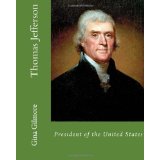
Fortified wine is a wine to which a distilled spirit, usually brandy, has been added. In the course of some centuries, winemakers have developed many different styles of fortified wine, including port, sherry, madeira, Marsala, Commandaria wine, and the aromatised wine vermouth.

The Lewis and Clark Expedition, also known as the Corps of Discovery Expedition, was the United States expedition to cross the newly acquired western portion of the country after the Louisiana Purchase. The Corps of Discovery was a select group of U.S. Army and civilian volunteers under the command of Captain Meriwether Lewis and his close friend Second Lieutenant William Clark. Clark, along with 30 others, set out from Camp Dubois, Illinois, on May 14, 1804, met Lewis and ten other members of the group in St. Charles, Missouri, then went up the Missouri River. The expedition crossed the Continental Divide of the Americas near the Lemhi Pass, eventually coming to the Columbia River, and the Pacific Ocean in 1805. The return voyage began on March 23, 1806, at Fort Clatsop, Oregon, ending six months later on September 23 of that year.

The Louisiana Purchase was the acquisition of the territory of Louisiana by the United States from the French First Republic in 1803. This consisted of most of the land in the Mississippi River's drainage basin west of the river. In return for fifteen million dollars, or approximately eighteen dollars per square mile, the United States nominally acquired a total of 828,000 sq mi in Middle America. However, France only controlled a small fraction of this area, most of which was inhabited by Native Americans; effectively, for the majority of the area, the United States bought the preemptive right to obtain Indian lands by treaty or by conquest, to the exclusion of other colonial powers.

Thomas Jefferson was an American statesman, diplomat, lawyer, architect, philosopher, and Founding Father who served as the third president of the United States from 1801 to 1809. He was the primary author of the Declaration of Independence. Following the American Revolutionary War and prior to becoming president in 1801, Jefferson was the nation's first U.S. secretary of state under George Washington and then the nation's second vice president under John Adams. Jefferson was a leading proponent of democracy, republicanism, and individual rights, and produced formative documents and decisions at the state, national, and international levels. His writings and advocacy for human rights, including freedom of thought, speech, and religion, served as substantial inspirations to the American Revolution and subsequent Revolutionary War in which the Thirteen Colonies succeeded in breaking from British America and establishing the United States as a sovereign nation.

Syrah, also known as Shiraz, is a dark-skinned grape variety grown throughout the world and used primarily to produce red wine. In 1999, Syrah was found to be the offspring of two obscure grapes from southeastern France, Dureza and Mondeuse Blanche. Syrah should not be confused with Petite Sirah, a cross of Syrah with Peloursin dating from 1880.

The 1796 United States presidential election was the third quadrennial presidential election of the United States. It was held from Friday, November 4 to Wednesday, December 7, 1796. It was the first contested American presidential election, the first presidential election in which political parties played a dominant role, and the only presidential election in which a president and vice president were elected from opposing tickets. Incumbent vice president John Adams of the Federalist Party defeated former secretary of state Thomas Jefferson of the Democratic-Republican Party.

Constantin François de Chassebœuf, comte de Volney was a French philosopher, abolitionist, writer, orientalist, and politician who was made Commander of the Legion of honour in 1804, Count of the empire in 1808, and a Peer of France by Louis XVIII. He was at first surnamed Boisgirais after his father's estate, but afterwards assumed the name of Volney.
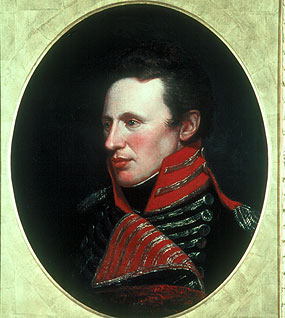
Zebulon Montgomery Pike was an American brigadier general and explorer for whom Pikes Peak in Colorado is named. As a U.S. Army officer he led two expeditions through the Louisiana Purchase territory, first in 1805–1806 to reconnoiter the upper northern reaches of the Mississippi River, and then in 1806–1807 to explore the southwest to the fringes of the northern Spanish-colonial settlements of New Mexico and Texas. Pike's expeditions coincided with other Jeffersonian expeditions, including the Lewis and Clark Expedition and the Red River Expedition in 1806.
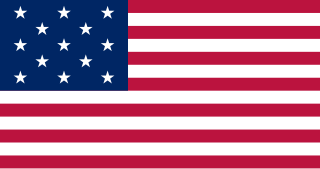
The Northwest Territory, also known as the Old Northwest and formally known as the Territory Northwest of the River Ohio, was formed from unorganized western territory of the United States after the American Revolution. Established in 1787 by the Congress of the Confederation through the Northwest Ordinance, it was the nation's first post-colonial organized incorporated territory.

Canandaigua is a city in Ontario County, New York, United States. Its population was 10,545 at the 2010 census. It is the county seat of Ontario County; some administrative offices are at the county complex in the adjacent town of Hopewell.
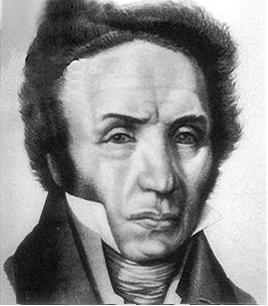
André Michaux, also styled Andrew Michaud, was a French botanist and explorer. He is most noted for his study of North American flora. In addition Michaux collected specimens in England, Spain, France, and even Persia. His work was part of a larger European effort to gather knowledge about the natural world. Michaux's contributions include Histoire des chênes de l'Amérique and Flora Boreali-Americana which continued to be botanical references well into the 19th century. His son, François André Michaux, also became an authoritative botanist.

Thomas Cooper was an Anglo-American economist, college president and political philosopher. Cooper was described by Thomas Jefferson as "one of the ablest men in America" and by John Adams as "a learned ingenious scientific and talented madcap." Dumas Malone stated that "modern scientific progress would have been impossible without the freedom of the mind which he championed throughout life." His ideas were taken very seriously in his own time: there were substantial reviews of his writings, and some late eighteenth-century critics of materialism directed their arguments against Cooper, rather than against the better-known Joseph Priestley.
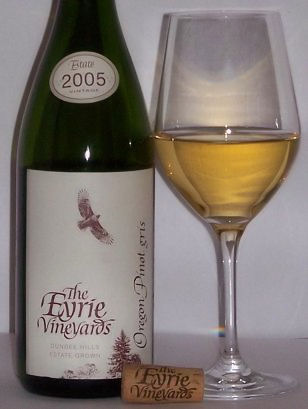
Wine has been produced in the United States since the 1500s, with the first widespread production beginning in New Mexico in 1628. Today, wine production is undertaken in all fifty states, with California producing 84 percent of all US wine. The North American continent is home to several native species of grape, including Vitis labrusca, Vitis riparia, Vitis rotundifolia, and Vitis vulpina, but the wine-making industry is based almost entirely on the cultivation of the European Vitis vinifera, which was introduced by European settlers. With more than 1,100,000 acres (4,500 km2) under vine, the United States is the fourth-largest wine producing country in the world, after Italy, Spain, and France.
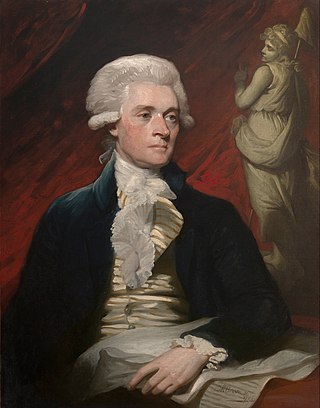
Notes on the State of Virginia (1785) is a book written by the American statesman, philosopher, and planter Thomas Jefferson. He completed the first version in 1781 and updated and enlarged the book in 1782 and 1783. It originated in Jefferson's responses to questions about Virginia, part of a series of questions posed to each of the thirteen states in 1780 by François Barbé-Marbois, the secretary of the French delegation in Philadelphia, the temporary capital of the Continental Congress.

Jeffersonian architecture is an American form of Neo-Classicism and/or Neo-Palladianism embodied in the architectural designs of U.S. President and polymath Thomas Jefferson, after whom it is named. These include his home (Monticello), his retreat, the university he founded, and his designs for the homes of friends and political allies. More than a dozen private homes bearing his personal stamp still stand today. Jefferson's style was popular in the early American period at about the same time that the more mainstream Greek Revival architecture was also coming into vogue (1790s–1830s) with his assistance.

The Missouri Compromise was a federal legislation of the United States that balanced desires of northern states to prevent the expansion of slavery in the country with those of southern states to expand it. It admitted Missouri as a slave state and Maine as a free state and declared a policy of prohibiting slavery in the remaining Louisiana Purchase lands north of the 36°30′ parallel. The 16th United States Congress passed the legislation on March 3, 1820, and President James Monroe signed it on March 6, 1820.

Christianity is the largest religion in Europe. Christianity has been practiced in Europe since the first century, and a number of the Pauline Epistles were addressed to Christians living in Greece, as well as other parts of the Roman Empire.

A classic is a book accepted as being exemplary or particularly noteworthy. What makes a book "classic" is a concern that has occurred to various authors ranging from Italo Calvino to Mark Twain and the related questions of "Why Read the Classics?" and "What Is a Classic?" have been essayed by authors from different genres and eras. The ability of a classic book to be reinterpreted, to seemingly be renewed in the interests of generations of readers succeeding its creation, is a theme that is seen in the writings of literary critics including Michael Dirda, Ezra Pound, and Sainte-Beuve. These books can be published as a collection or presented as a list, such as Harold Bloom's list of books that constitute the Western canon. Although the term is often associated with the Western canon, it can be applied to works of literature from all traditions, such as the Chinese classics or the Indian Vedas.

Thomas Jefferson, the third president of the United States, was involved in politics from his early adult years. This article covers his early life and career, through his writing the Declaration of Independence, participation in the American Revolutionary War, serving as governor of Virginia, and election and service as Vice-President to President John Adams.
The bibliography of Thomas Jefferson refers to published works about Thomas Jefferson, the primary author of the Declaration of Independence and the third president of the United States. Biographical and political accounts for Jefferson now span across three centuries.
